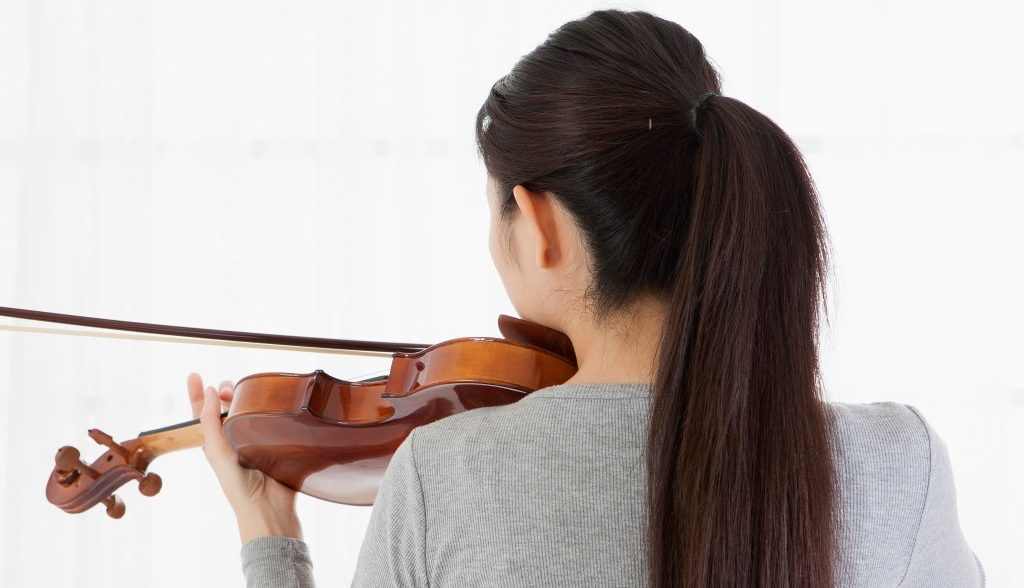The Healing Power of Music

Music is so effective that scientists now use it to reshape the brain. It may help stroke victims recover verbal memory better than listening to audiobooks.
When Laurel was only 11, she suffered a stroke that left her unable to speak a single word. But, as a report in Scientific American Mind put it, “she found her way back to language through music.”
A type of therapy called melodic intonation allowed her to draw on the undamaged regions of her brain and learn to speak again. One 2020 study concluded that listening to vocal music helped stroke victims recover verbal memory more successfully than listening to audiobooks.
YOU MIGHT ALSO LIKE: Stroke Warning Signs
After he underwent brain surgery to remove a tumor, surgeon R.B. Fratianne, MD, lost much of his motor skills, and his speech was slurred. A music therapist urged him to try to play the piano, which he had studied in the past.
Slowly, Fratianne recalls, he regained his ability to play by ear, forcing his brain to respond through the coordination of sound and motor skills. The ability of the brain to reform lost connections through music allowed Fratianne to return to surgery at his pre-operative level in a hospital burn unit.
Laurel and Fratianne’s cases were examples of neuroplasticity, the unique ability of the brain to bypass injured areas and teach undamaged areas to serve as a surrogate.
The power of music
Their cases illustrate the edge of a new frontier that uses the power of music in treatments “based directly on the biology of neurological impairment and recovery,” the Scientific American report says.
“I believe music therapists play an important, but often overlooked, role in helping patients cope with the effects of illness, pain, loneliness and fearful apprehension about the future of their health,” Fratianne says.
“There are so many remarkable stories about that “exquisite musical/clinical moment when art and science come together to create an awareness, an accomplishment, a breakthrough,” to quote the website of the American Music Therapy Association.
In the Scientific American report, the authors present example after example of neurological breakthroughs accomplished through the applied use of rhythm, beat, and melody to help patients with brain disorders.
Music therapy isn't new
Shamans in the mountain forests of Peru still use chanting as a primary tool for healing. The Ashanti people in Ghana do the same with drumming.
“Sound has been used as a healing force for thousands of years,” says Simon Heather, founder of the College of Sound Healing, a British non-profit dedicated to promoting sound healing.
“All ancient civilizations used sound for healing. Traditional cultures still surviving today understand the remarkable healing power that lies in sound.”
What you can do
Perhaps you do, too, if you simply play some soothing music at the end of a long day and let yourself slip into its calming effect, letting it take you to that rain forest where your everyday issues are irrelevant. Maybe you just step out back, grab a chair, and listen to some of Earth’s original music — birds.
Renowned neurologist Oliver Sacks writes in his book “Musicophilia” that “music can lift us out of depression or move us to tears — it is a remedy, a tonic, orange juice for the ear…. We humans are a musical species no less than a linguistic one.”
Psychologist Michael Friedman says, “music matters. That’s what Pete Seeger showed us.” A clinician in Manhattan, Friedman notes in Psychology Today that Seeger is primarily remembered for his catchy, sing-a-long social consciousness and protest songs. But his primary legacy obscures the legendary folk singer’s equally emphatic quest for simple healing.
“When Seeger said, `This machine surrounds hate and forces it to surrender,’ he was throwing down the gauntlet. Music heals,” Freidman asserts.
He cites the widespread use of music to treat mental illness, emotional suffering, increase positive thought, and encourage empathy and “helping” behavior. Friedman says that Seeger’s constant emphasis on the sing-a-long was his way of connecting people like you and building community.
Music can melt away feelings of loneliness and isolation and take your stress, anger, and depression with it.
Mark Neikrug, a composer of contemporary classical music over a 30-year career, took a side road two years ago with “Healing Ceremony.” The album was influenced by his more than two decades of living on a Pueblo reservation in New Mexico. The values the tribe places on ceremony and music to remain grounded and maintain community well-being are a central theme.
Originally created for cancer patients, “Healing Ceremony” began to circulate within a broader audience, including people dealing with a wide range of problems, stress chief among them.
He adds that a certain beat can lower your blood pressure, slow your pulse, and just generally put you at ease.
The key, he says, is to be in tune with why you’re playing the music. Have an intent and be conscious of the power the music has. The more mindful you are, the deeper it goes and the more healing it will be.
Updated:
June 23, 2022
Reviewed By:
Janet O’Dell, RN